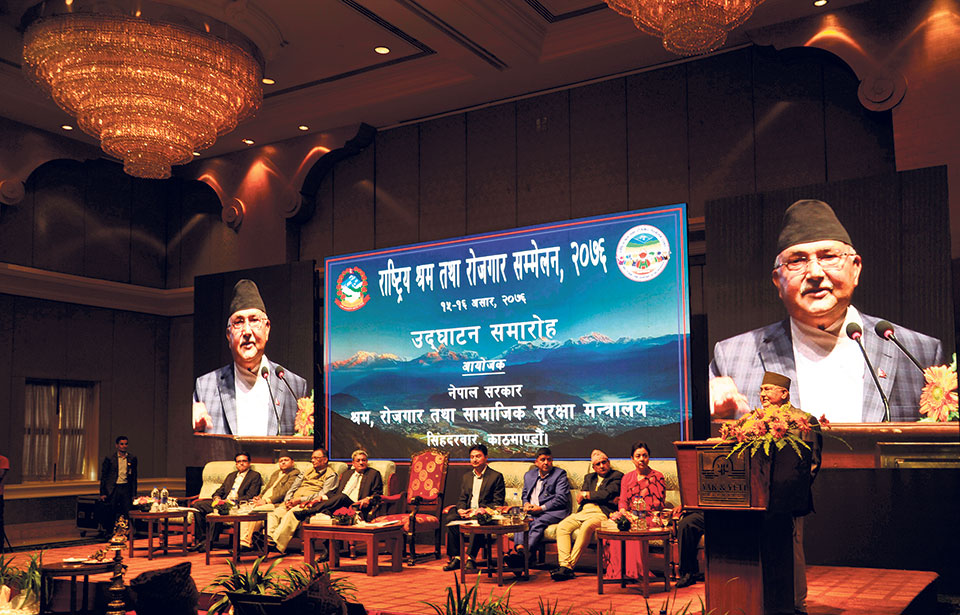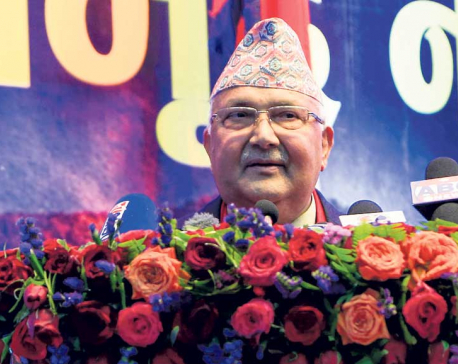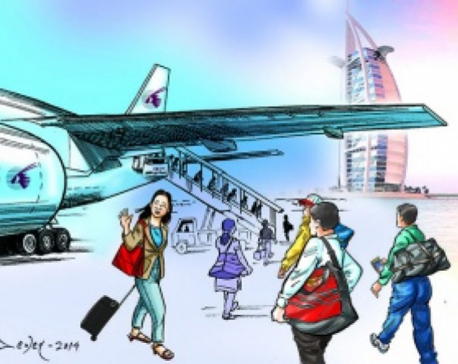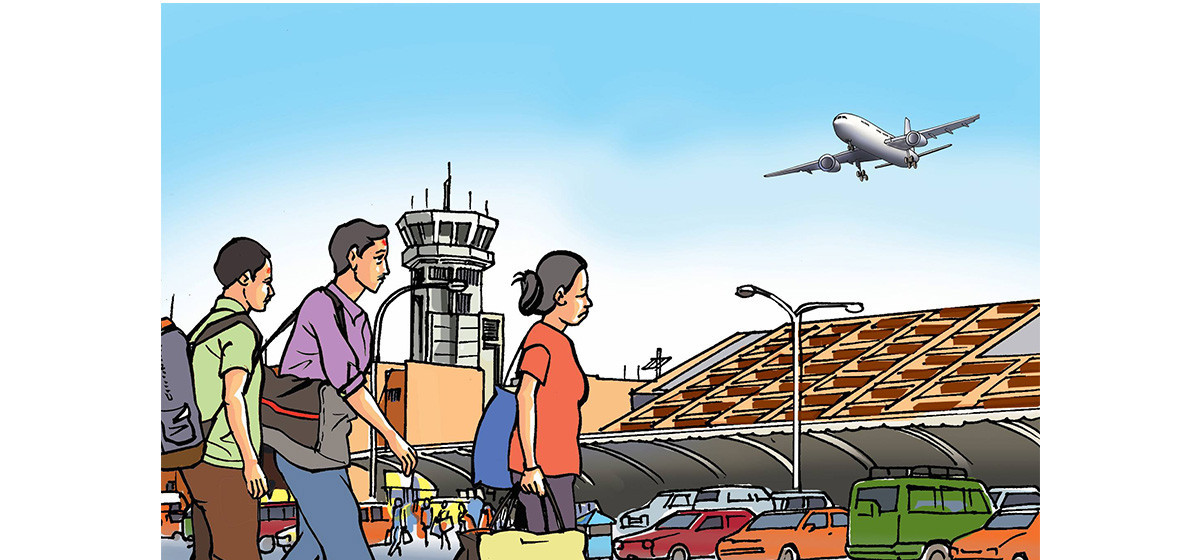
OR
Experts suggest regulating informal job sector
Published On: July 1, 2019 11:12 AM NPT By: Nikeeta Gautam

KATHMANDU, July 1: With an objective to identifying opportunities and gaps for employment creation and developing a dialogue-led consensus towards tackling pertinent labor and employment issues in Nepal, the government is hosting a two-day ‘National Labor and Employment Conference’ starting Sunday.
In an economy with 11.6 percent people unemployed and 30 percent semi-employed, the government, by organizing the conference, aims at promoting an environment conducive to employment generation in the country.
According to 2017/2018 labor survey, only 37 percent of the workforce is engaged in the formal sector whereas 62.2 percent is engaged in the informal sector.
“In the informal sector, the wage is very low. We should focus on regulating the informal employment sector,” said Shankar P Sharma, former vice-chairperson at National Planning Commission (NPC). “However, the question remains about going forward in an effective way,” he said.
Also speaking at the conference, Former Minister for Labor and Transport Management Ramesh Lekhak said: “Earlier, foreign employment was our compulsion, now it has become a necessary compulsion.” In Nepal, 25.1 percent of the GDP is generated through remittances.
Lekhak also urged the government to focus more on implementation of development projects than just talking about development.
“The concept of work has changed drastically. Discussions and meetings are no longer considered to be work. It’s only the results that matter,” he said.
Similarly, Gokarna Bista, Minister for Labor, Employment and Social Security, said that the skills and qualification of the people should be linked with possible opportunities in the employment market. On the same note, he said formal channels should be ensured for sending Nepali people abroad if they wanted to go for foreign employment.
Inaugurating the event, Prime Minister Khadga Prasad Oli said the agricultural sector should be developed and modernized to help the economy grow. He also said that archaeological sites were Nepal’s precious assets that could promote both tourism and job creation. “We can create immense opportunities in these two areas by properly studying the prospects.”
Representatives and experts from the government, private sector, trade unions, development partners, and non-governmental organizations are participating in the conference. Issues relating to labor and employment policy, future of work, information technology, employment and wage, productivity, and national economy are being discussed in the conference.
You May Like This

Of chances and dances
I once had the rather unique experience of being an invigilator for the EPS-TOPIK exams conducted in Kathmandu. For those... Read More...

Elderly couple loses three sons to foreign employment
MYAGDI, March 30: Three sons of Dharmalal Rokka and Lalmati of Malika Rural Municipality-2 of Myagdi district had gone for foreign... Read More...

Misappropriation of migrant workers' fund setback to foreign employment sector
KATHMANDU, Sept 28: Like every government of the past, the present government too began with a pledge to carry out... Read More...



Just In
- Lack of investment-friendly laws raises concerns as Investment Summit approaches
- 550,000 people acquire work permits till April of current fiscal year
- Fixing a win by outlawing dissent damages democracy
- MoHP cautions docs working in govt hospitals not to work in private ones
- Over 400,000 tourists visited Mustang by road last year
- 19 hydropower projects to be showcased at investment summit
- Global oil and gold prices surge as Israel retaliates against Iran
- Sajha Yatayat cancels CEO appointment process for lack of candidates










_20220508065243.jpg)


Leave A Comment